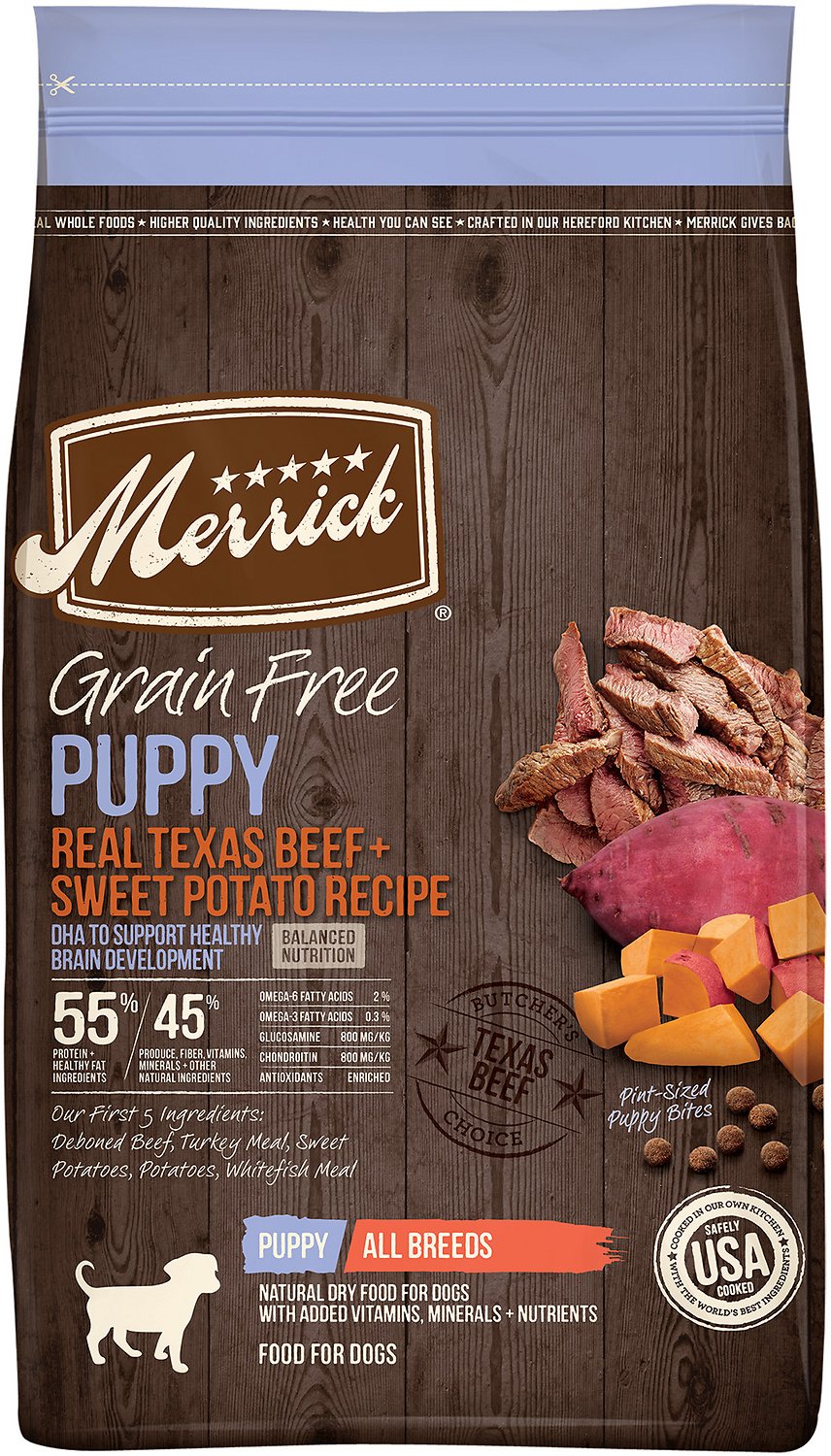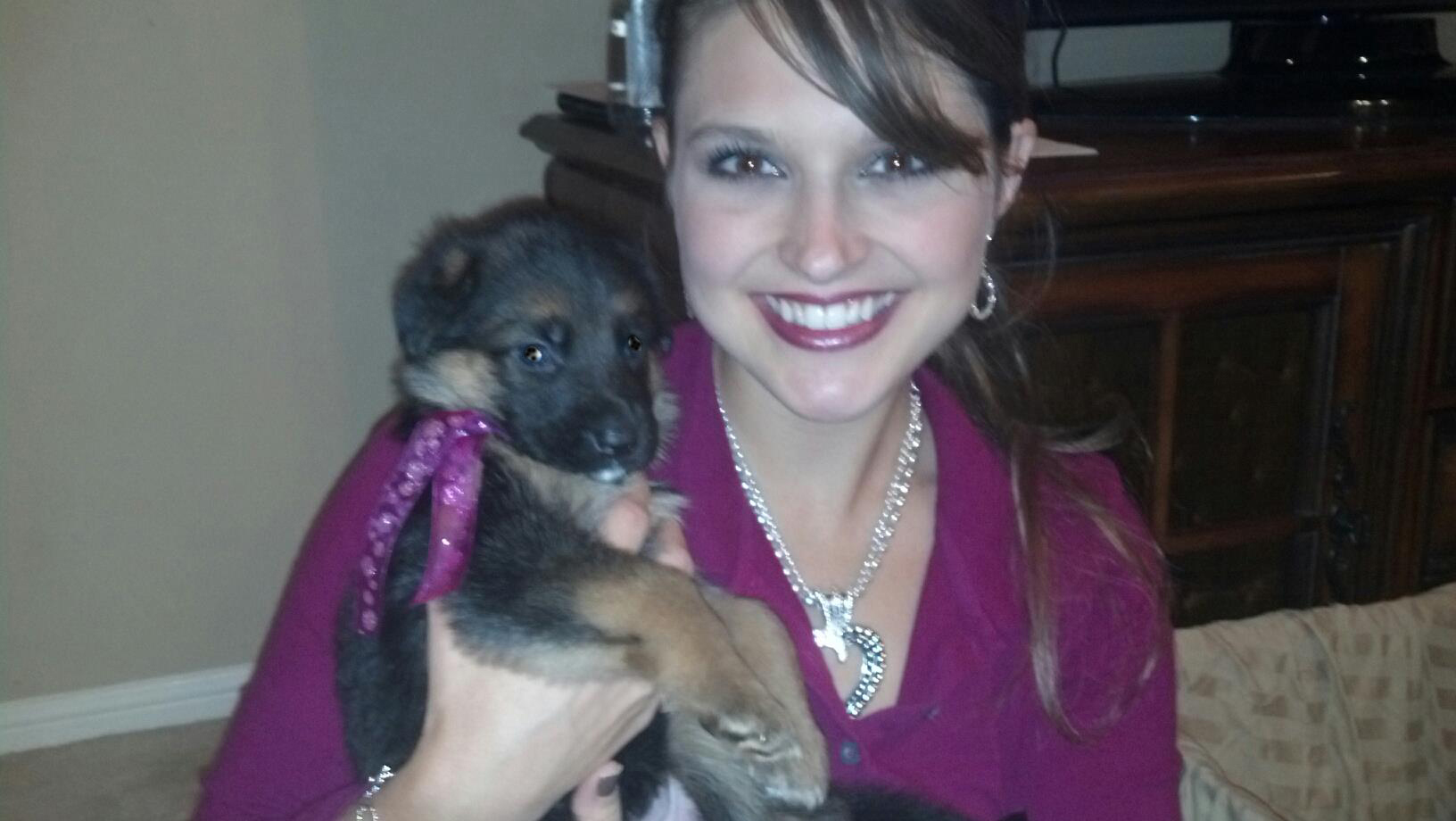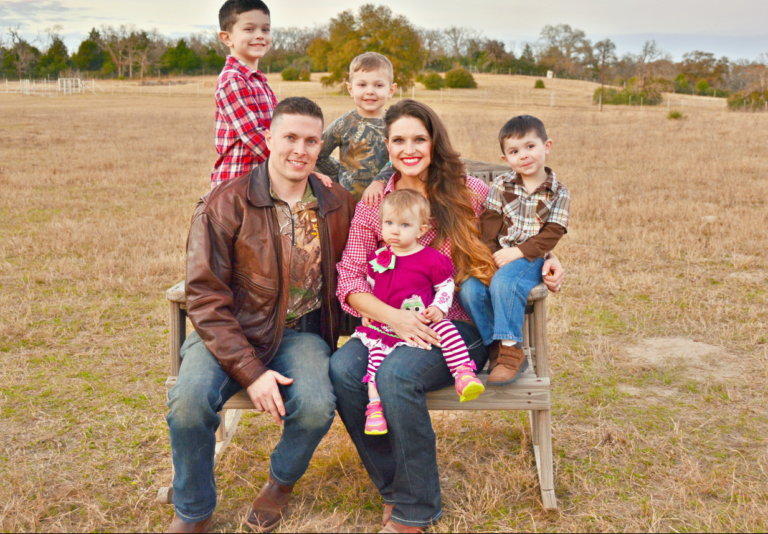Supplements, Nutrition & Health Tips
Supplements:
 We highly recommend you supplement your puppy with NuVet Plus so that your pup can get all of the wonderful benefits that it has to offer. NuVet is a tasty treat that provides all of the nutrients a puppy needs to grow into a healthy adult! We personally use NuVet and have for several years on all of our dogs. We want to make sure they have all the necessary nutrition to help them live a long, healthy life. NuVet provides an excellent supplement designed to promote healthy bones and joints which can help prevent hip & elbow dysplasia in breeds that are prone to it. Keep in mind, your German Shepherd dog can still get dysplasia even when they come from healthy bloodlines free of it; through nutritional deficiencies or injuries. Especially, during the growth stages.
We highly recommend you supplement your puppy with NuVet Plus so that your pup can get all of the wonderful benefits that it has to offer. NuVet is a tasty treat that provides all of the nutrients a puppy needs to grow into a healthy adult! We personally use NuVet and have for several years on all of our dogs. We want to make sure they have all the necessary nutrition to help them live a long, healthy life. NuVet provides an excellent supplement designed to promote healthy bones and joints which can help prevent hip & elbow dysplasia in breeds that are prone to it. Keep in mind, your German Shepherd dog can still get dysplasia even when they come from healthy bloodlines free of it; through nutritional deficiencies or injuries. Especially, during the growth stages.
NuVet is recommended because it boosts the immune system which will help protect your puppy from harmful environmental toxins, bacteria, and even chemicals in the yard and home. NuVet also supports proper development, healthy skin and a shiny coat, and it helps complete their daily nutritional requirements for optimal health.
A healthy puppy is a happy puppy and that is why we recommend NuVet to all of our customers.
You can save 15% on your puppy’s supplements by signing up for their Auto Ship Program and they ship directly to your door.
You can order directly from the manufacturer by calling 800-474-7044 and using Order Code: 893875, or order online at www.nuvet.com/893875 . We do receive commission by recommending their product, but honestly we would recommend it either way and have been recommending it long before they contacted us.
Skin Allergies & Hot Spots:
For skin allergies, we recommend first changing dog foods and finding a brand/flavor with quality ingredients that your dog does well on (For example: De-boned lamb, dehydrated lamb or lamb meal). Remember, the ingredients listed first make up the majority of the food. Here is a website to help with your research: dogfoodadvihttps://www.dogfoodadvisor.com/
Recommended Skin Products:
Sulfodene Hot Spots & Itch Relief
Dog Food:
Each dog may have a different taste preference or do better on another food. Sometimes they get burned out or just like a change. I’m not trying to promote any particular dog food and these are merely suggestions, but definitely choose one with quality ingredients. If you can feed your dog a raw healthy diet and have the resources readily available, then that’s great and I highly recommend it! Refer to the “Skin Allergies & Hot Spots” section above for more detailed guidance on selecting nutritional foods. We order our dog food online from chewy.com. Unfortunately, many Veterinarians recommend dog foods that are not high quality or best for your puppy. We are happy to explain how to recognize quality ingredients when you pick up your puppy if that would be helpful.
For Puppies: We typically use Merrick Puppy Beef & Sweet Potato
For Adults: We typically use American Journey Limited Lamb & Sweet Potato
For picky eaters: You can encourage your dog to eat his/her healthy dog food by adding WildGold or puppy formula on top, or mix with quality can dog food or raw meats (no cooked bones, especially chicken bones).
Healthy Treats: We like True Acre and Pet Botanics treats, but you need to limit treats because they do best on a steady diet of their food. We typically use treats for training purposes.
Information on Puppy Health:
When puppies are around 8 weeks old and ready for their new homes, they have immature immune systems, unlike a mature adult dog. They don’t have the ability to resist common intestinal worms or parasites associated with Coccidia or Giardia, and have to be regularly tested and treated. A healthy puppy can easily be susceptible to contracting these worms and parasites, because it can be found anywhere there is dirt or water, which is basically everywhere.😄 We do our best to treat and prevent, but a puppy with these common worms or parasites is not considered an unhealthy puppy and can easily be treated under your Veterinarian’s care which is part of parenting a puppy. We have our Veterinarian do an overall health check on our puppies before they go to their new homes and expect them to have an additional health check conducted by your Veterinarian within 72 hours of picking up your puppy. If your puppy is deemed “unhealthy” by your Veterinarian and your Veterinarian recommends he be returned to the breeder, you would need to express this to us immediately after your Veterinarian’s appointment. Otherwise, his health is your responsibility. See the Buyer/Seller Contract webpage for more details on our health guarantee. A puppy with an umbilical hernia is not uncommon and is not considered an unhealthy puppy. Many times a puppy will develop an umbilical hernia during the birthing process when the umbilical cord gets pulled on prior to separating from the placenta. The hernia is the separation of the muscles around the naval area and it may need a minor surgical procedure to stitch the muscles back together, but most of the time it repairs itself with time. A puppy with a previously fractured tail, toe etc. is not considered an unhealthy puppy and does not change the quality of the puppy. Sometimes the mother accidentally steps on the infant puppies and causes injury, but they are very resilient and most of the time heal very quickly.
What type of hip or elbow dysplasia is covered in our health guarantee? The answer is “crippling dysplasia”. What is “crippling dysplasia”? A dog that develops dysplasia and must be put down prior to living a normal long life (9-13 years old) is considered crippling dysplasia. See below for clarification:
1. OFA, SV or PennHIP certified: This Dog is a candidate for being a breeder and should never have any issues with “crippling dysplasia”.
2. Not OFA, SV or PennHIP certified, because of having mild or moderate signs of dysplasia: This dog is not a candidate for being a breeder, but can live a long normal life. If documentation is obtained according to our contract and this dog is unable to live a normal long life (9-13 years old) due to it developing into “crippling dysplasia”, then a replacement puppy would be in order according to our contract.
3. Not OFA, SV or PennHIP certified due to signs of severe dysplasia: This dog has a high probability of not living a long normal life and may have to eventually be put down. If documentation is obtained according to our contract and this dog is unable to live a normal long life (9-13 years old) due to it developing into “crippling dysplasia”, then a replacement puppy would be in order according to our contract.
You must protect your puppy from exposure to deadly diseases. For example: Distemper, Parvovirus etc. Your puppy will be current on his vaccinations against these type of diseases, but the vaccination shots are a series of typically 4 rounds of shots. Your puppy has not built up full immunity against these diseases until the completion of the series. For this reason, we recommend you protect your puppy from exposure to diseases commonly found at public dog parks, gas stations, rest stops or anywhere other dogs defecate. Be vigilant and aware when you step in areas of potential disease exposure and then track it back home to your puppy on the soles of your shoes. Some diseases can live in the soil for up to a year. Here is a common schedule for puppy vaccinations you can expect:
• 1st round of shots around 6-7 weeks old
• 2nd round of shots around 8-9 weeks old
• 3rd round of shots around 12 weeks old
• 4th round of shots around 16 weeks old, along with a rabies shot
• Heartworm prevention is typically started around 8 weeks old, but no later than 6 months old, and it typically includes treatment of intestinal worms as well
Something to be aware of is a puppy can test positive for Giardia even after the parasite has been killed. We do not recommend giving your puppy antibiotics to treat Giardia if he shows no symptoms associated with Giardia, such as diarrhea, vomiting etc. You will only weaken your puppy’s immune system by over medicating him when unnecessary. We highly recommend you provide your puppy with probiotics & immune system support supplementation.
We will provide you with your puppy’s health records when you pick up your puppy and you can show it to your Veterinarian, so they are familiar with what vaccinations and treatment your puppy has received.
Information on Ears:
Most of the time their ears will stand up by the time they are 5-6 months old, but sometimes it takes up to 9 months. It is best to avoid touching (petting, folding, rubbing or messing with the ears) while they are trying to stand and firm up. Also, avoid objects that constantly bump or rub against the ears. For example: Crates where their ears touch the top or fencing they poke their head through. That constant weakening of the ear’s cartilage while trying to stand can cause the cartilage in the ear to not firm up. Also, nutritional deficiencies and not being regularly de-wormed can cause the ears to not stand or firm up properly. It is also a proven fact that the puppy’s teething is directly related to the ears standing and it is important to provide something good he can chew on while teething, because it can negatively effect his ears without it. Most people assume the ears don’t stand properly due to a genetically passed along trait, but there are many other causes and reasons why the ears don’t stand up after full maturity, as stated above. It is best to be familiar and educated about your puppy as much as possible and that can help you avoid common mistakes. As a rule of thumb, their ears need to be taped up or use ear forms if they are not up by 5-7 months old, just to be on the safe side. Sometimes, a little assistance is all they need to help their ears develop properly. Please, do NOT tape the ears up too early or prior to 5 months old. Most of the time their ears will stand up on their own and you can potentially cause issues by trying to help. If necessary, check with your Veterinarian and see if they can help you out with the process. It can be a pain to have to do, but well worth the effort. There are implant options if that doesn’t work, but that can be expensive. Here is a very helpful link: http://texasworkingshepherds.com/german-shepherd-ears-not-standing-up-what-can-i-do
Tips on Puppy Biting:
“My puppy play bites and those sharp teeth hurt!”
 If you are interested in this topic, you probably have a puppy that won’t stop biting. I think we can definitely help you through this. Many people misunderstand the reasons behind this stage and sometimes fear their puppy will grow up to be an untrustworthy and overly aggressive dog. Rest assured that all puppies go through biting phases and poorly bred bloodlines and mistreated or abused dogs are the ones that grow up to have issues after maturity. Keep in mind that puppies love to attack their favorite toys, rugs, curtains etc. and especially things that move like your pant’s leg or your hands. Their natural prey and herding drive causes them to enjoy going after things that move. This is how puppies prefect their skills to become a great protector of their family someday. Some are more stubborn than others, but all have the ability to be trained to not bite you and typically outgrow this behavior with time and proper training. It’s perfectly natural for puppies to bite and it can be a wonderful protection trait later on with proper training. We’ve found that puppies with higher bite drive typically make the best protection dogs after maturity and will not back down when someone poses a treat to its family.
If you are interested in this topic, you probably have a puppy that won’t stop biting. I think we can definitely help you through this. Many people misunderstand the reasons behind this stage and sometimes fear their puppy will grow up to be an untrustworthy and overly aggressive dog. Rest assured that all puppies go through biting phases and poorly bred bloodlines and mistreated or abused dogs are the ones that grow up to have issues after maturity. Keep in mind that puppies love to attack their favorite toys, rugs, curtains etc. and especially things that move like your pant’s leg or your hands. Their natural prey and herding drive causes them to enjoy going after things that move. This is how puppies prefect their skills to become a great protector of their family someday. Some are more stubborn than others, but all have the ability to be trained to not bite you and typically outgrow this behavior with time and proper training. It’s perfectly natural for puppies to bite and it can be a wonderful protection trait later on with proper training. We’ve found that puppies with higher bite drive typically make the best protection dogs after maturity and will not back down when someone poses a treat to its family.
Your puppy must be properly trained and taught to not bite you and learn to have a high respect for you as the master. At this point, it may have become a habit and a bad habit at that, so it could be more difficult to break. But, it can be accomplished with proper techniques and consistency. When he/she bites you, you may need to lightly squeeze his muzzle until you get a response. You have to let him know you are in control and get him to submit to you. I’m not saying you have to do anything that is considered abusive, but you have to get their attention the same way his mother would when she scolds him. If a puppy bites his mother too hard, his mother will snap at him, growl and pin him down to the ground if necessary. His mother definitely let him know who was the boss and you need to do the same. You cannot allow him to bite you, even when it seems so cute at first! You have to be more determined than him and don’t give up. It takes patience, but eventually you can work through it. If done properly, you can get him to stop biting in a few minutes. Now, he may forget and try again, but you just keep putting him in his place again and again until he learns. Even if it takes several weeks. Be consistent! Some people say they tried it and it didn’t work and only made him more aggressive. This is a classic case of not being firm enough or consistent enough. We’ve raised hundreds of puppies over the years and never had a single one turn out to be an untrustworthy or dangerously aggressive dog, thanks to the quality bloodlines, and these techniques described above have worked for us time and time again. Even our young children have learned how to successfully apply these techniques. There is no reason to think your puppy will be the exception and your issues are going to be training error, not the puppy’s fault. Expect to get a few scratches along the way, but it only lasts a short while and the rewards to your efforts will far outweigh the difficulties! Having raised several puppies over the years, we understand what you are going through and know it’s not easy with some, especially if you have small children. But, once you get past this stage you will end up with a wonderful family companion! They can be the most difficult at times when they are puppies, but it is definitely worth the trouble and effort in raising him!
You may also want to seek a local professional trainer’s help or advice too. I recommend you check with your local Veterinarians to help you find a quality trainer near you or you can check with me for some of my personal recommendations. There is nothing wrong with seeking help from a professional trainer if your puppy is more than you can handle yourself or if you desire he be trained on a more advanced level. We’ve had numerous folks use trainers with exceptional results. There are also great YouTube videos on how to train dogs as well. German Shepherd dogs love to be with you and learn, and it creates a higher level of respect with their master the more time you can invest in them.
“Train your puppy before he trains you…” 😉











